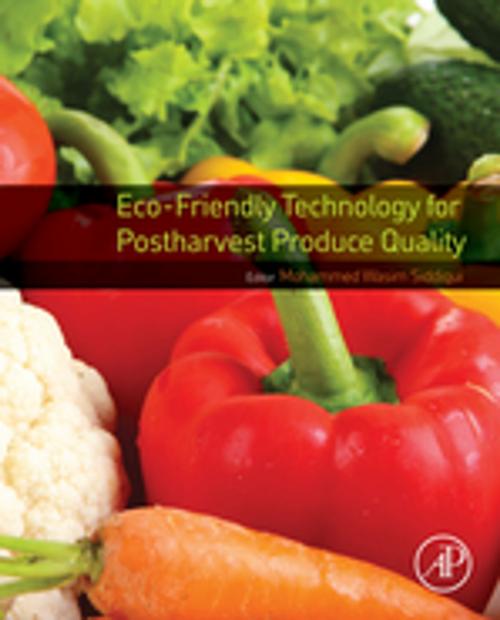Eco-Friendly Technology for Postharvest Produce Quality
Business & Finance, Industries & Professions, Industries| Author: | ISBN: | 9780128043844 | |
| Publisher: | Elsevier Science | Publication: | April 12, 2016 |
| Imprint: | Academic Press | Language: | English |
| Author: | |
| ISBN: | 9780128043844 |
| Publisher: | Elsevier Science |
| Publication: | April 12, 2016 |
| Imprint: | Academic Press |
| Language: | English |
Eco-Friendly Technology for Postharvest Produce Quality presents the scope of emerging eco-friendly technologies to maintain the postharvest quality of fresh produce in terms of safety and nutrition. The book covers an analysis of the alternative and traditional methodologies pointing out the significant advantage and limitations of each technique. It provides a standard reference work for the fresh produce industry in postharvest management to extend shelf life by ensuring safety first and then nutritional or sensory quality retention.
Fruits and vegetables are a huge portion of the food supply chain and are depended on globally for good health and nutrition. The supply of good food, however, greatly depends on good postharvest handling practices. Although substantial research has been carried out to preserve the quality of fresh horticultural produce, further research—especially on safety—is still required. This book provides foundational insights into current practices yielding best results for produce handling.
- Includes appropriate approaches, technologies, and control parameters necessary to achieve shelf-life extension without compromising produce quality
- Presents successful food safety methods between the time produce is harvested to consumption
- Includes the latest information on preservation technologies using novel chemical methods, active packaging, and monitoring the effect of environmental stresses on quality and shelf life of agricultural produce
Eco-Friendly Technology for Postharvest Produce Quality presents the scope of emerging eco-friendly technologies to maintain the postharvest quality of fresh produce in terms of safety and nutrition. The book covers an analysis of the alternative and traditional methodologies pointing out the significant advantage and limitations of each technique. It provides a standard reference work for the fresh produce industry in postharvest management to extend shelf life by ensuring safety first and then nutritional or sensory quality retention.
Fruits and vegetables are a huge portion of the food supply chain and are depended on globally for good health and nutrition. The supply of good food, however, greatly depends on good postharvest handling practices. Although substantial research has been carried out to preserve the quality of fresh horticultural produce, further research—especially on safety—is still required. This book provides foundational insights into current practices yielding best results for produce handling.
- Includes appropriate approaches, technologies, and control parameters necessary to achieve shelf-life extension without compromising produce quality
- Presents successful food safety methods between the time produce is harvested to consumption
- Includes the latest information on preservation technologies using novel chemical methods, active packaging, and monitoring the effect of environmental stresses on quality and shelf life of agricultural produce















